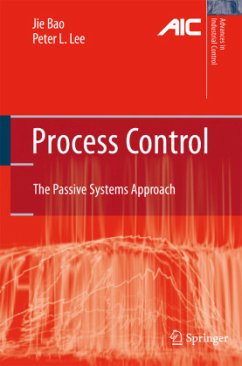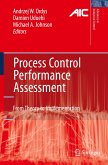Passivity and associated stability conditions form one of the cornerstones in control theory and have begun to be applied in process control. The passivity framework can be used in process input-output controllability analysis as well as control design. Here, the concept of passive systems is also linked to process thermodynamics to provide engineers with insights into the physical bases of results.
In this book, passivity-based developments in the areas of robust process control, decentralized control, fault tolerant control, process controllability analysis and nonlinear process control are addressed systematically for the first time. Written for the industrial, engineering and academic communities, the emphasis is placed on results that enhance insight and intuition. Application issues are illustrated by case studies in all the main chapters. MATLAB® routines for all examples and a library of functions that implement the methods developed in "Process Control" can bedownloaded from springer.com.
In this book, passivity-based developments in the areas of robust process control, decentralized control, fault tolerant control, process controllability analysis and nonlinear process control are addressed systematically for the first time. Written for the industrial, engineering and academic communities, the emphasis is placed on results that enhance insight and intuition. Application issues are illustrated by case studies in all the main chapters. MATLAB® routines for all examples and a library of functions that implement the methods developed in "Process Control" can bedownloaded from springer.com.
From the reviews:
"Process Control: The Passive Systems Approach provides material that is potentially valuable to students and researchers interested in learning the fundamentals of passivity-based methods and their application to chemical process control and thermodynamics. ... The main strength of the book is that it shows that passivity can provide a formalism for studying process control. Relevant results are reviewed, and interesting research questions are posed. ... Overall, the book is useful as a reference and as a source of new research ideas." (B. Erik Ydstie, IEEE Control Systems Magazine, Vol. 30, February, 2010)
"Process Control: The Passive Systems Approach provides material that is potentially valuable to students and researchers interested in learning the fundamentals of passivity-based methods and their application to chemical process control and thermodynamics. ... The main strength of the book is that it shows that passivity can provide a formalism for studying process control. Relevant results are reviewed, and interesting research questions are posed. ... Overall, the book is useful as a reference and as a source of new research ideas." (B. Erik Ydstie, IEEE Control Systems Magazine, Vol. 30, February, 2010)








